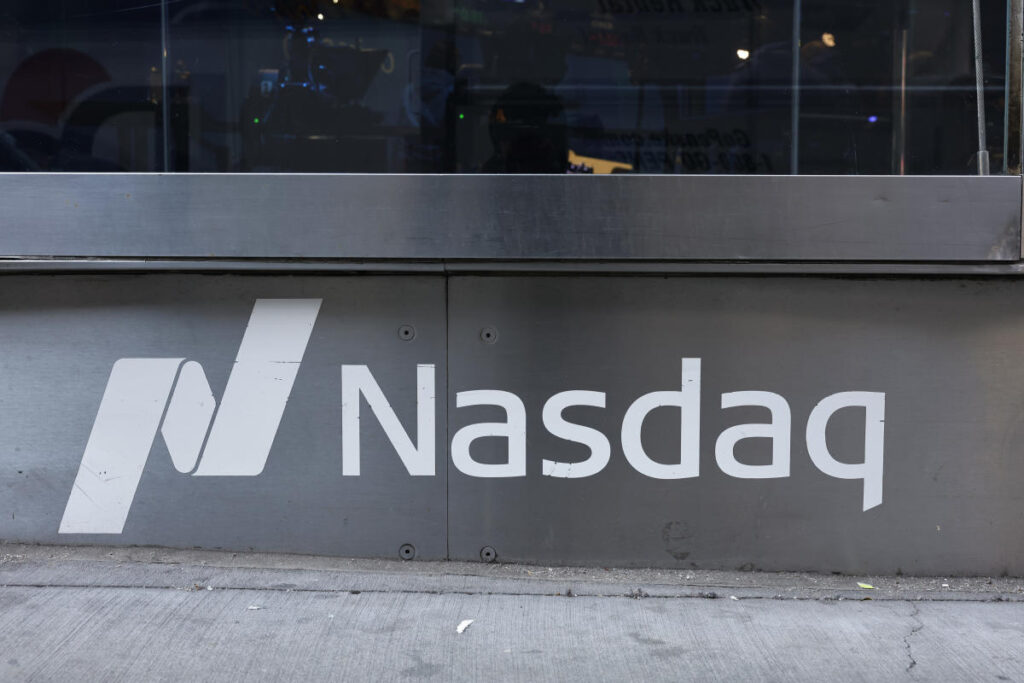This is the gist of today's Morning Briefing. sign up Get the following in your inbox every morning:
The Nasdaq Composite Index surpassed the 17,000 mark for the first time earlier this week.
I'm not one to get excited about record highs on major exchanges or for specific stocks, but I thought this “milestone” was really cool.
When I started my career in the summer of 2004, the Nasdaq Composite Index was around 1,800, not far from the collapse of the dot-com bubble. That's a nine-fold increase in two decades. At the same time, my hairline had shrunk by a factor of nine.
Today, we are witnessing a new tech boom. Daily advances in generative AI are fueling the rise of companies like Nvidia (NVDA), Anthropic, and OpenAI. While some of this technology is downright scary, there's no denying the impact it's having on market value perception.
And this week, I got some fresh insight into how the rise of AI is impacting financial statements and forecasts.
HP Inc. (HPQ) CEO Enrique Lores said one of the factors that led the company's second-quarter EPS guidance to beat consensus was the launch of more expensive AI PCs in mid-June (video above). These will be HP's first AI PCs with more powerful processors to support a variety of AI-related tasks.
Although Chewy (CHWY) CEO Sumit Singh didn't explicitly mention AI during our conversation, it's clear that AI is beginning to translate into improved sales and profits. My understanding is that investments in automation technology have enabled the company to respond more quickly to consumer needs.
I got a similar vibe when I spoke with Abercrombie & Fitch (ANF) CEO Fran Horowitz, who is using new technology to keep inventory low and “track” real-time demand signals, which has resulted in impressive margin expansion.
It's exciting stuff!
And all of this helps understand the enthusiasm for many big tech stocks.
But then came ballpark numbers and guidance from Salesforce (CRM).
Woof.
It's hard to forget how disappointing the quarter was, and I wrote about them in the pre-dawn live markets blog, which was truly unexpected given the company's new AI product suite.
However, guidance was lackluster, which may force Salesforce to pull back from booming AI deals until the macroeconomic environment improves.
But after Salesforce's shocking quarterly results, I decided to take a closer look at the tech-heavy Nasdaq, and specifically the Nasdaq 100 (the 100 largest non-financial companies traded on Nasdaq), to see if there were any red flags emerging in the situation.
In short, for anyone who believes stock prices are true, or that they are predictors of future fundamentals, I don't like what I found.
The Nasdaq 100 Index is trading near new highs amid strength in stocks like Nvidia and Apple (AAPL), but the number of stocks above their 50-day moving averages has dropped significantly, according to the latest research from Sundial Capital Research. As of last week, fewer than 60% of the Nasdaq 100 stocks were above their 50-day moving averages. That's not a good thing.
Sundial notes that fewer and fewer stocks are trading above their 200-day moving averages.
“While it looks ominous on the charts, historically most weakness in future returns has been confined to the next one to three months,” Sundial's research team said.
Among the Nasdaq 100's laggards are consumer staples stocks like Dollar Tree (DLTR) and Lululemon (LULU), but AI stocks like Workday (WDAY) and Autodesk (ADSK) have also performed relatively poorly.
“The tech market is a market of haves and have-nots, and investors want to bet on a pure AI revolution in which big tech companies will dominate and other tech stocks will be left behind,” said Dan Ives, tech analyst at Wedbush.
Truist co-chief investment officer Keith Lerner said a convergence of factors could lead to continued weakness in non-tech stocks.
“Hurting sectors outside of tech is the recovery in the 10-year Treasury yield, which found support just above 4.3% and is now above 4.6% as the market sees the Fed cutting rates less. As we move further into June, the election comes more into sight, which is likely adding to the recent selling pressure,” Lerner said.
My point here is not that the Nasdaq is heading for a summer bear market, but that not all is as healthy in the tech industry as it seems, and top tech stocks could fall this summer as investors reassess valuations after the stocks' meteoric rise.
Are there any Nasdaq stocks that aren't participating in the current bull market that could be worthwhile? Before you go looking, hear how well-known value investor Jonathan Boyar goes about his investment process in the latest Yahoo Finance “Opening Bid” podcast. Listen below:
Brian Sozzi Editor-in-Chief of Yahoo Finance. Also,Starting BidPodcast. Follow Sozzi on Twitter/X Brian Sozzi and LinkedInHave a tip on a deal, merger, activist situation, etc.? Email brian.sozzi@yahoofinance.com. Are you a CEO and would like to appear on Yahoo Finance Live? Email Brian Sozzi.
For in-depth analysis of the latest stock market news and events that are moving stock prices, click here..
Read the latest financial and business news from Yahoo Finance


